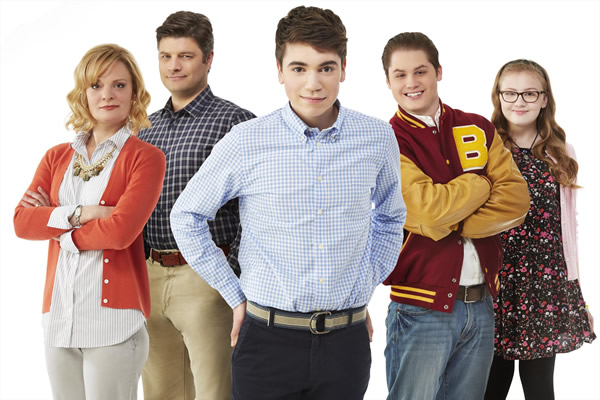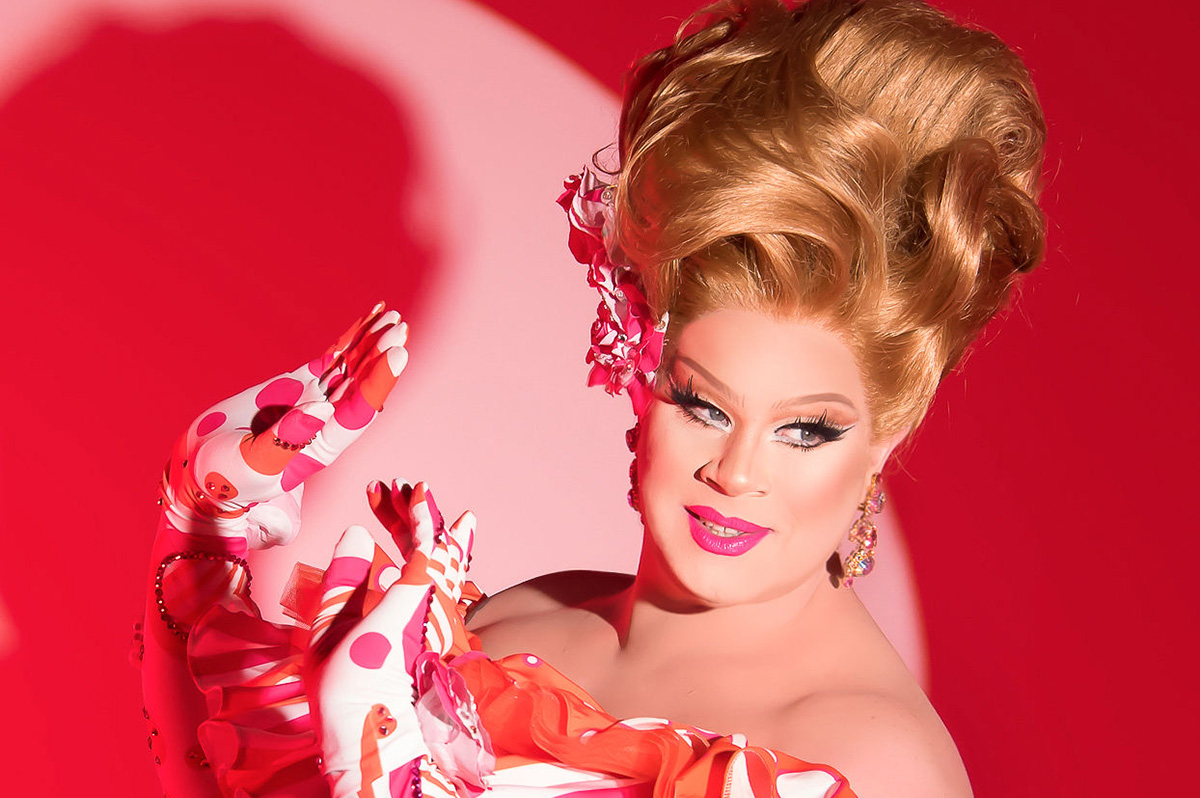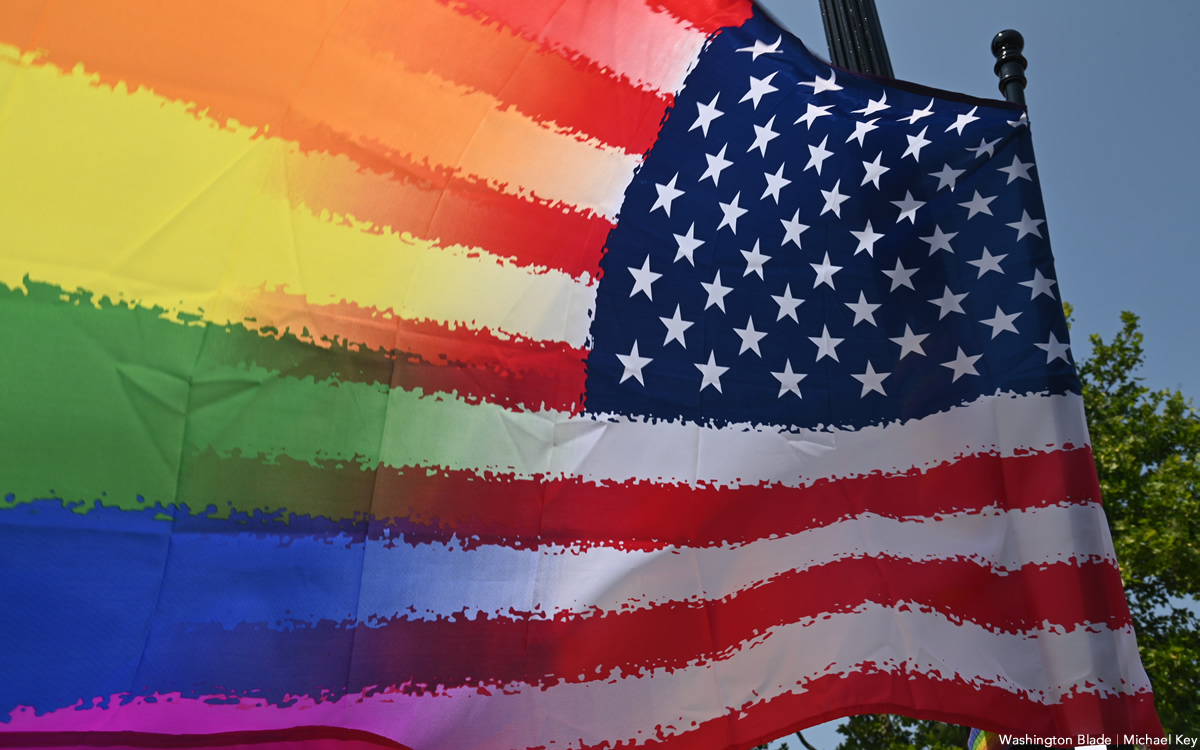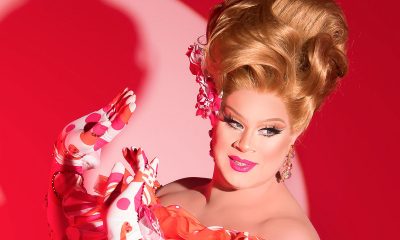Arts & Entertainment
SPRING ARTS 2016: TV
‘O’Neals’ finds humor in coming-out journey


Noah Galvin, center, stars in ‘The Real O’Neals,’ a new gay-themed ABC sitcom. (Photo courtesy ABC)
Chelsea Handler’s documentary series dropped on Netflix Jan. 23. “Chelsea Does” has four 90-minute episodes that each address a different topic, including marriage, drugs, technology and race. In the marriage episode, Handler examines a broad spectrum of relationships, including gay partnerships, Vegas weddings and her own failed romances.
Shonda Rhimes continues to dominate Thursday night television on ABC with “Grey’s Anatomy” at 8 p.m., “Scandal” at 9 p.m., and “How To Get Away With Murder” at 10 p.m. Rhimes’ shows are known for their diverse casts and prominent LGBT actors, characters and plots.
The first season of “The Shannara Chronicles” ended March 1. The MTV fantasy drama is based on the Shannara series by Terry Brooks. Ivana Baquero, who is best known for playing Ofelia in Pan’s Labyrinth, stars as Eretria, who is bisexual.
Openly gay cast member Kate McKinnon continues to be one of the most memorable on “Saturday Night Live,” which airs Saturdays at 11:30 p.m. on NBC. She took over the role of Hillary Clinton, once played by Amy Poehler. Ariana Grande will pull double duty as the host and musical guest on March 12.
Season eight of “RuPaul’s Drag Race” kicks off on March 7 on LOGO. Michelle Visage, Ross Matthews and Carson Kressley all return to the judge’s table.
YouTube star Tyler Oakley is a contestant in season 28 of “The Amazing Race,” which airs Fridays at 8 p.m. on CBS. Oakley and his teammate have consistently been finishing each leg of the race in the top two. Each team this season is made up of at least one internet celebrity, including popular YouTube, Vine and Instagram stars.
Rachel Bloom stars in “Crazy Ex-Girlfriend” Mondays at 8 p.m. on the CW. The characters White Josh and Darryl Whitefeather are gay and bisexual, respectively. Bloom recently won the Golden Globe Award for Best Actress for her role in the musical comedy.
Ken Jeong stars in “Dr. Ken,” a sitcom inspired by Jeong’s experience as a doctor before becoming a stand-up comedian. Openly gay actor Jonathan Slavin plays a supporting role in the show, which airs Fridays at 8:30 p.m. on ABC.
Martha Plimpton stars in “The Real O’Neals,” airing Tuesdays at 8:30 p.m. on ABC. Openly gay actor Noah Galvin plays Plimpton’s son, who reveals to his Catholic family that he is gay. The Family Research Council has called for a boycott of the series, which is produced by Dan Savage.
“Legends of Tomorrow” airs Thursdays at 8 p.m. on the CW. Gay actors Victor Garber and Wentworth Miller star in the superhero show, which is a spinoff of “Arrow” and “The Flash.” The show includes the recurring “Arrow” character Sara Lance (Caity Lotz), who is bisexual.
Rob Lowe stars in “You, Me, and the Apocalypse,” which airs Thursdays at 8 p.m. on NBC. Several interwoven storylines connect an ensemble cast who attempt to stop a world-ending asteroid from hitting earth. Two of the main characters are in a gay partnership. The British-American series originally aired in the UK last fall.
Daniel Franzese stars in “Recovery Road” on Freeform, the new name for ABC Family. The show follows a teenage girl going through rehab in a sober living facility. It airs Mondays at 9 p.m.
“Shadowhunters” airs on Freeform on Tuesdays at 9 p.m. This fantasy series is based on “The Mortal Instruments” by Cassandra Clare. Matthew Daddario and Harry Shum, Jr.’s characters are gay and bisexual, respectively.
Jennifer Lopez stars in “Shades of Blue,” who plays an NYPD detective caught up in an anti-corruption probe. The show airs Thursdays at 10 p.m. on NBC and was renewed for a second season.
“Empire” returns to Fox on Wednesday, March 30 at 9 p.m. Lee Daniels, who is openly gay, created the series, which includes several LGBT cast members and characters. A central conflict of the show is the tension between homophobic patriarch Lucious Lyon (Terrence Howard) and his gay son Jamal (Jussie Smollett, who is also gay).
“Live at 9:30” is an upcoming public access show, which will premiere in April. The music variety show will be filmed at the 9:30 Club and will feature performances by Tove Lo, Jess Glynne, Garbage and more.
Coming to Netflix:
Kevin Spacey and Robin Wright return to Netflix on March 4 in season four of “House of Cards.” Spacey plays the bisexual, Machiavellian president in the D.C.-based drama.
Season two of “Marvel’s Daredevil” drops on Netflix on March 18. Charlie Cox plays the title superhero, a blind vigilante who defends Hell’s Kitchen. Prominent LGBT ally Rosario Dawson plays a supporting role in the series.
Also entering its second season is “Unbreakable Kimmy Schmidt.” The Tina Fey-created series stars her “30 Rock” co-star Jane Krakowski and Titus Burgess. Netflix renewed the show for a third season.
Season two of “Grace and Frankie” premieres on Netflix on May 6. Lily Tomlin and Jane Fonda star as two women who, despite decades of disliking each other, form a close friendship when their husbands (Sam Waterston and Martin Sheen) divorce them for each other.
In more renewal news, Netflix renewed “Orange Is the New Black” for three addition seasons beyond the upcoming fourth season, which premieres June 17. The series has been lauded for featuring a racially diverse cast and giving significant screen time to trans, lesbian and bisexual characters and actors.
Sports
Trans cyclist’s victory sparks outrage in conservative media
Katheryn Phillips is originally from DC

On the heels of UPenn erasing the record of the first openly transgender NCAA Division I All-American swimmer and the U.S. Supreme Court’s decision to tackle bans on trans student-athletes, right wing media is now all hot and bothered about the latest trans woman who won a cycling championship — even though she competed according to the rules.
On Tuesday, 58-year-old Katheryn Phillips finished first in USA Cycling’s Lyons Masters National Championship race for women aged 55-59, with a time of 1:42:10, according to the official results posted by the organization. The record shows her gender as “F” for female.
One second behind Phillips was Julie Peterson, with a time of 1:42:11 — as were three other cyclists: Mary Beth Grier, Andrea Cherniak-Tyson, and Carolyn Maddox.
Peterson, 57, was so outraged, she told Fox News she refused to stand on the podium in second place next to Phillips. Her story was swiftly shared by the New York Post (also owned by Fox’s parent company News Corp.), the Daily Mail, Breitbart, and other conservative media.
Both Peterson and another competitor are accusing USA Cycling of “hiding” that a transgender woman had registered to race.
“It was hidden from us. Katheryn Phillips, KJ’s name, was not on that list. And I checked it up all the way to the point of closure when we couldn’t register online anymore,” Debbie Milne told Fox.
“If I had known, I wouldn’t have spent thousands of dollars in travel and time off work to come and do a race,” Peterson said. Fox welcomed Milne, 56, who finished seventh on Tuesday, to Fox & Friends Thursday morning.
(Video courtesy of Fox News)
Peterson told Fox she did complain to USA Cycling officials prior to the race. Both Milne and Peterson referred to Phillips as a male, and with “he/him” pronouns.
“To be fair to all humans, if we want to say ‘him’ or ‘her,’ he was born a biological male, that is a fact,” Milne said. “And that is the thing that makes it an unfair advantage. Whatever has happened after that is a whole different topic.”
“I said, ‘I don’t want to race against a man,’ and they quickly scolded me and said ‘Oh, you can’t call him a man,’ and I’m like ‘Well, he is a man,’ so I was quickly scolded and corrected that it is a woman and I don’t even know what to say.”
USA Cycling did not respond to the Washington Blade’s emails requesting comment.
Phillips, who goes by Kate and by “KJ,” is a former rugby player with the D.C. Furries, who stated in the comments of a 2024 article published by Zwift Insider that she was the first out trans athlete in the U.S. to compete under the 2004 International Olympic Committee’s guidelines on trans participation.
“When USA Rugby told me about the IOC decision in 2004, I raised my hand to be included. I experience nothing but joy when I play, ride, and race,” Phillips said.
As the Blade has reported, the International Olympic Committee drastically revised those rules in 2021, and in March, Republican lawmakers in D.C. demanded the IOC ban trans female athletes from women’s sporting events altogether.
The Blade also reached out to Phillips for comment but as of press time we have not received a response. She told Zwift Insider in March 2024 she does not let those who disapprove or spread hate impact her performance or her attitude.
“I am unaffected by dissent. I love, I share joy, I am me, and I have been my authentic self for decades,” she said. It’s been reported Phillips came out in 1999, and told Zwift Insider she considers herself a lifelong cyclist.
“I’ve been on a bike for as long as I can remember,” said Phillips. “As kids, my friends and I rode all over town, we were feral kids; no cell phones, no trackers … we just roamed, and nobody got in trouble or hurt bad enough not to ride home … Scrapes/bruises/cuts were not an issue for us. In my teens, I worked for myself as a court/legal messenger, doing all of the work via my bike until I got a car. Raced BMX as a kiddo (when I mowed lawns to cover the race entry fees), I did MTB stuff (non-racing) and Sprint/Olympic Triathlons in my 30’s, and now I’m racing on Zwift, Road/Gravel, and CX in my 50s.”
In the comments section, Phillips made clear she’s not competing to win.
“I don’t do sports for victory, I do it because like many other women, I am an athlete to my core,” she said. “Unlike some, I am not there to WIN, I am there to do my best with the competitors and teammates I have around me trying to do the same…we are in it for the experience. I rejoice in their wins, and a lot of joy is reflected back to me when I have a good day.”
Celebrity News
Nina West’s ‘Sugar in the Tank’ tour comes to Rehoboth Beach
Drag Race’ contestant will be at Clear Space Theater Company on July 6

Nina West, a drag queen known for competing on “RuPaul’s Drag Race,” is currently on her ‘Sugar in the Tank’ tour around U.S. cities.
With previous shows in Key West, Fla., New York, and hometown of Columbus, Ohio, the tour is staying put in Provincetown, Mass., from late July to early September. It will make a stop at Clear Space Theater Company in Rehoboth Beach, Del., as part of a summer cabaret series on July 6.
Andrew Levitt has been performing as Nina West for 25 years, who got her rise from starring in “Drag Race” Season 11, where she placed sixth and won Miss Congeniality, a title awarded to the contestant who is regarded as the kindest and most helpful one of that season.
West has toured “Hairspray” on Broadway as Edna Turnblad, starred in a couple of feature films and published a children’s book titled ‘The You Kind of Kind.’
Levitt said he wrote this show in response to attacks from the government towards the LGBTQ community.
“‘Sugar in the Tank’ is a big old gay fabulous summer musical,” Levitt told the Washington Blade. “The show is a response to the darkness that I think has fallen over a lot of people in the country and it’s hopefully trying to bring a little bit of light and a little bit of joy.”
“Sugar in the Tank” is a Southern euphemism for gay, often holding a negative connotation. Levitt said he wanted to “reclaim and embrace” queerness in times when some people want to take that away.
Levitt said he knew he would be traveling to predominantly queer destinations like Key West and Provincetown for these shows and that was always at the forefront of his mind when writing “Sugar in the Tank.”
This will be Levitt’s first time in Rehoboth Beach. Clear Space Theater is considered Delaware’s second-largest professional non-profit theater and the state’s most prolific producer of professional theater. The space seats just 170 patrons and Levitt said he loves the intimacy of a small venue and that it’s his favorite way to do a show.
“Stages like this size are the perfect size for me because it allows for me to really showcase my talents,” Levitt said.
Levitt founded the Nina West Foundation in 2015 to uplift and sustain the central Ohio LGBTQ community, which has raised more than $3 million for various organizations. He said he makes activism part of the entertainment in his career.
“That’s the nuance of what drag is. We can be ridiculous for fun and we can be serious but it’s all wrapped up into one thing,” Levitt said. “I think that can be the power of it.”
Levitt said West is so much more confident now than when he first started performing as her. He didn’t know where his voice belonged in the community in the past, but because of those who came before him in this art form, he has learned to harness the power of the stage and the power of the wig to be able to tell stories.
“I really love my community. I love queer people. I love who we are and what we represent,” Levitt said. “Knowing our history and knowing that we’ve been through a lot, I’m really thrilled that as a queen, I can use my voice and my platform to help try to better our community, not try to speak for everyone but try to lend voice to people who desperately need it.”
Levitt’s advice to young queer artists is to not give up on yourself, surround yourself with supportive people and allow yourself the opportunity and space to fail, to ask questions, and to not give up.
“Our young people have got to be told they matter,” Levitt said. “Oftentimes, people are told that they don’t matter, that their voice doesn’t matter, that they cannot make a difference and I want to remind every single person who’s doing this that they do matter, they can make a difference, their voice is intrinsic to who we are as a community.”
If Sugar in the Tank was a drink, it would be a Bahama Mama or Sex on the Beach, said Levitt, because they are delicious, juicy, and sugary, just like the show.
“I just want everyone to know that they should come to ‘Sugar in the Tank’ and experience a show that’s built on joy and levity and silliness and fun and come have some fun with me and show me the fabulous love of Rehoboth Beach,” Levitt said. “I can’t wait.”

The Rainbow History Project will host “Pickets, Protests and Parade Exhibit Tour” at 7 p.m. at Freedom Plaza. This event honors the courage, resilience and resistance of D.C.’s gay community. For more details, visit Eventbrite.
Go Gay DC will host “LGBTQ Community Social” at 7 p.m. at Hyatt Centric Arlington (1325 Wilson Blvd.). This fun event is ideal for meeting new people and community building. Attendance is free and more details are available on Eventbrite.
Xavier Entertainment DC will host “Cowboy Carter Afterparty” at 10 p.m. at Nellie’s Sports Bar. There will be fireworks, parades, and patriotic fun. For more details, visit Eventbrite.
Mezcal Amaras will host “Sha Boing Boing Showdown” at 6 p.m. at Snappy’s Small Bar (3917 Georgia Ave., N.W.). Get ready to test your hotdog eating abilities. Tickets start at $12.51 and can be purchased on Eventbrite.
Illusions Drag Queen Show will host “Drag Queen Dinner Show” at 7 p.m. at 2323 18th St. N.W. Guests will be treated to the very best celebrity drag impersonations in entertainment. Tickets start at $12.97 and are available on Eventbrite.
Thurst Lounge will host “A Thirsty Cowboy Afterparty” at 5 p.m. DJ Apollo will be performing. For more details, visit Thurst’s website.
9:30 Club will host “Gimme Gimme Disco: A Dance Party Inspired by ABBA” at 9 p.m. The DJ will play plenty of disco hits from the 70s and 80s. Tickets cost $45.30 and can be purchased on Ticketmaster.

















